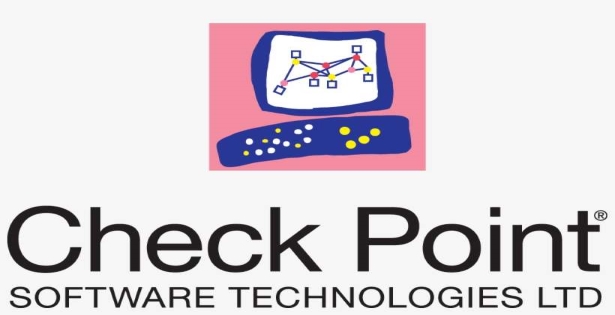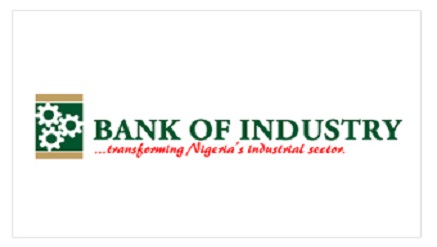E-Financial
Seven Ways to Keep your Smart Home Devices out of the Hands of Hackers

Check Point® Software Technologies Ltd., a leading provider of cybersecurity solutions globally, has seven tips to help Africans keep their smart home devices out of the hands of hackers.

In an increasingly connected world, it’s becoming harder to find a home that doesn’t have at least one smart device. In fact, research shows that, by 2026, there will be three million smart homes in South Africa.
Whether it’s a smart TV, a smart plug that lets you turn devices on and off remotely, or a doorbell with a fully functioning camera, these devices are here to stay.
However, while these gadgets provide convenience, they are also simultaneously multiplying the number of access points that hackers can use to steal private and personal information, such as email addresses or credit card information.
An investigation by Which? reported that, on average, homes with smart devices are vulnerable to 12,000 hacking or unknown scanning attacks from across the world in just a single week.
News reports have shared horror stories ranging from smart devices listening to private conversations to hackers using camera-enabled gadgets to gain access to a constant stream of live video from inside homes.
With more people working from home today, attackers are also going a step further: targeting unprotected work devices connected to the same compromised Wi-Fi and gaining access to the corporate network.
By using our smart home devices as a gateway, these intruders can leave behind a path of chaos, affecting not only personal privacy but also resulting in a possible corporate-wide data breach.
Pankaj Bhula, Regional Director for Africa at Check Point Software Technologies said, “South Africans are hyper aware of the precautions to take to prevent burglars from entering our homes and stealing our physical possessions.
However, most often, we overlook the hidden threats posed by our smart home devices that allow malicious hackers with sinister intentions to watch and listen to our most private conversations conducted in the comfort and confines of our own homes.
“With every year that passes, we are seeing a constant trend of hackers becoming ever more aggressive and, as a result, any device connected to the internet is ‘fair game.’ In the landscape we now live in, it’s not enough to assume that these incidences just ‘won’t happen’ to you, and all owners of these devices should be taking extra precautions to keep their information protected. It only takes only one overlooked device for a hacker to create untold harm and distress.”
Tips to keep your smart home devices safe and secure
- Update software: Regularly updating your devices’ software when required is a must to keep your home and your data protected. You can also purchase additional antivirus software for your mobile devices, which doesn’t have to cost a fortune. It can often work out to the same price as buying one cup of coffee a day. With hackers using more sophisticated attack methods, it’s important to have the best and newest form of protection against these evolving threats.
- Set up a standalone Wi-Fi network for your devices: Most routers let you create a separate network for your smart home devices, which will make it harder for hackers to access your devices. You can also consider creating a ‘guest setting’ for your Wi-Fi. This will allow your friends and family to access the internet without the risk of you having to write down or virtually share your primary network login details.
- Level up your passwords: Create strong passwords for each device, ensuring that they are random and not personal to the individual that owns the device. Personal information, like your birthday, is easier for hackers to find. If you struggle to remember complex passwords, consider using a password manager to help keep your devices protected.
- Double authentication: By setting up a second form of authentication, known as two-factor authentication or 2FA, hackers can be deterred from accessing your devices. While this may pose a mild inconvenience to you, it’s nothing compared to the turmoil a hacker can cause once they’ve gained access to your smart home devices.
- Encryption: Ensure your router is using the highest level of encryption to keep your data safe from unwanted threats. Don’t forget about any internal Wi-Fi extenders or powerline home networks that will also have a setting to allow encryption across the home network. Doing this will add an extra layer of protection not only for your router, but also for your smart devices.
- Change the default password on your router: This is separate to your Wi-Fi passwords but just as important. Most routers come with a simple default password to allow for easy set-up, but as a result are just as easy for hackers to guess. There are even lists of the most common passwords online, so be safe and change them as soon as possible.
- Keep your work devices protected: With more people working from home, it’s important that your work devices are as protected as personal ones when they are relying on your home Wi-Fi. Make sure your devices are up to date with the latest anti-malware technology. By keeping everything secure, you can reduce the threat posed to your smart devices.
E-Financial
CBN Expresses Concern Over Foreign Investments in Nigeria Fintechs

The Central Bank of Nigeria in its 2025 Fintech Policy Insight Report, has raised concern over Nigeria’s fintech sector heavily dependent on foreign investment, exposing it to swings in global markets.

The report said the sector has shown resilience despite global economic pressures, but warned that reliance on external capital leaves it vulnerable to market fluctuations.
It would be recalled that startups in the country raised $520m in equity funding in 2024, down from about $747m in 2019, when Nigeria captured roughly 37 per cent of all African startup investment.
This performance, amid significant global macroeconomic gyrations, underscores Nigeria’s position as a key hub for financial innovation. The sharp rise in interest rates in advanced economies during 2022 contributed to a slowdown in venture capital funding.
“These dynamics highlight the importance of developing domestic funding avenues, such as leveraging Nigeria’s capital markets, to reduce currency risk and sustain fintech growth,” the apex bank stated.
Olayemi Cardoso, CBN Governor, said Nigeria is undergoing a rapid and significant financial evolution. Over the past decade, the nation’s fintech landscape has grown from a handful of startups into one of Africa’s most vibrant innovation ecosystems.
“Even amid global economic headwinds, Nigerian fintech firms continued to attract investment and drive change. Today, with improved stability of our currency and domestic economy, it is clearer than ever that financial innovation can advance inclusion at scale,” the executive commented on the report.
In addition to funding, the central bank underscored Nigeria’s continued leadership in digital financial infrastructure. More than 25 per cent of all electronic transactions in Africa’s most populous nation are processed via real-time payment channels, with close to 11 billion transactions processed in 2024, up from five billion in 2022. The report described Nigeria’s instant payments platform, NIBSS NIP, as among the most mature and widely adopted globally.
The report also mentioned the need to strengthen system integrity and reputation, pointing to compliance reforms, anti-money laundering supervision, and consumer protection measures as key priorities for sustaining investor confidence.
By focusing on domestic funding, regulatory modernisation, and innovation infrastructure, the CBN aims to position Nigeria not only as a fintech front-runner but also as a rule-setter whose regulatory lessons are relevant to peer emerging and high-growth economies globally, the central bank said.
Stakeholders surveyed by the CBN also cited compliance costs as a significant challenge to innovation. According to the report, 87.5 per cent of respondents said that the cost of meeting regulatory and risk requirements significantly impacts their capacity to innovate, while delays in product approvals and regulatory timelines also remain major bottlenecks.
The report noted that 62.5 per cent of fintech firms plan to expand regionally, and there is strong support for regulatory pass-porting frameworks to enable compliant expansion into other African markets. However, the CBN warns that such cross-border growth requires a stable funding base and coordinated regulation.
E-Financial
UBA’s Easy and Instant Account Opening Thrills Returnee

After a few years abroad, I returned to Nigeria and faced a dilemma. Let me tell you all about it.

UBA
A few days ago, I was dragging my luggage through Murtala Muhammed International Airport. Everything felt bright and beautiful. Not necessarily in aesthetics, but in the vibrant colours, sounds, and energy all around. After three intensive years in the UK, I was finally back home. Ready for the hustle and bustle of Lagos life, and yes, the comfort of my parents’ home.
The plan was simple. Settle down and get my life on track. I’d sorted the job, and I had my person. But then came my dilemma. Money!. This doesn’t mean I was short of it or had too much of it. The real issue is where to actually keep and manage it in this country with daily dramatic happenings. With just two weeks left before I resumed at my new workplace, I had no time for long queues, endless paperwork, or the classic “Nigeria bank stress.” So, I needed an account, and I needed it fast.
So I turned to my best friend, Google, and typed, “Instant account opening in Nigeria.”
In less than a second, I was redirected to the United Bank for Africa instant account opening portal. A few taps later, and I had a fully functional account. Just like that. I could receive my funds, transfer my funds, and start building my financial life here again.
In less than a second, I was redirected to the United Bank for Africa instant account opening portal. A few taps later, and I had a fully functional account. Just like that. I could receive my funds, transfer my funds, and start building my financial life here again. Talk about ease, and this beautiful experience truly exemplified that definition
I was genuinely amazed. It felt too easy, almost suspiciously easy. But it was real, I mean, really soft like they were just thinking all about me while developing this new feature.
If you’re like me and pressed for time, avoiding unnecessary stress, or just ready to sort your finances without the hassle, consider this your sign.
UBA’s instant account opening is a game-changer. No queues to cut into your precious time. Just you and your phone, minutes away from being banked.
Get started here: https://aop.ubagroup.com
Trust me, if I could do it between unpacking and settling in, you can do it too. Your future self will thank you.
E-Financial
BOI Secures CBN Nod for Sharia Banking, Unlocks Ethical Funding Boom

Bank of Industry (BOI) has received Central Bank of Nigeria (CBN) approval to launch a Non-Interest Banking (NIB) Window, expanding ethical financing for underserved businesses nationwide.

BOI
The move positions BOI to mobilise Sharia-compliant funds, finance assets and raw materials without interest, and target MSMEs plus high-impact sectors previously sidelined by conventional loans.
Divisional Head of Public Relations, Theodora Amechi, said the window aligns BOI with social goals, boosting real economy support and sustainable industrial growth.
MD/CEO Dr. Olasupo Olusi hailed it as a “pivotal moment,” enabling the bank to serve faith-sensitive enterprises shunning riba-based loans.
Analysts see it as CBN’s vote of confidence in BOI’s governance, set to spur innovation and inclusive financing for Nigeria’s ethical business segments.
Established in 1959 as Nigeria’s top Development Finance Institution, BOI now strengthens its drive for broad-based economic transformation.

 E-Financial2 days ago
E-Financial2 days agoAlawuba Advocates Security, Bankable Projects, Infrastructure Development to Promote South-East Vision

 Telecom1 day ago
Telecom1 day agoNCC Committed to Regional Digital Integration – Maida

 E-Financial1 day ago
E-Financial1 day agoCBN Expresses Concern Over Foreign Investments in Nigeria Fintechs

 General News1 day ago
General News1 day agoIndigenous Firm Deploys 400,000 Smart Electricity Meters in 2025

 E-Financial1 day ago
E-Financial1 day agoBOI Secures CBN Nod for Sharia Banking, Unlocks Ethical Funding Boom

 Telecom1 day ago
Telecom1 day agoITU Top Director Visits NITDA, Boosts Nigeria’s Digital Literacy Push

 E-Financial1 day ago
E-Financial1 day agoUBA’s Easy and Instant Account Opening Thrills Returnee

 News1 day ago
News1 day agoEFInA Unveils Research Fellowship Programme to Deepen Financial Inclusion Impact



























